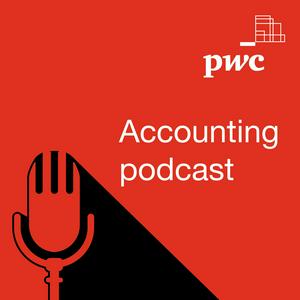We continue our revenue accounting podcast miniseries with a discussion on payments to customers—an area that can raise complex accounting questions, especially when those payments come in the form of equity. We examine when these payments reduce revenue versus when they represent consideration for a distinct good or service. We also highlight updates from the FASB’s new guidance on share-based consideration payable to a customer.In this episode, we discuss:0:56 – Overview of consideration payable to a customer5:41 – When to recognize payments to a customer15:15 – Applying ASC 718 to equity-based payments to a customer23:41 – Key provisions in FASB’s new guidance on equity consideration29:49 – Classifying, measuring, and recognizing equity payments36:41 – Accounting for payments to settle litigation claims or other disputesFor more information, see chapter 4 of our Revenue guide, chapter 7 of our Stock-based compensation guide, and our In brief, FASB issues guidance on share-based consideration payable to a customer. Listen to the other episodes in this series:Revenue accounting reset – Recognizing revenueRevenue accounting reset – Variable consideration Be sure to follow this podcast on your favorite podcast app and subscribe to our weekly newsletter to stay in the loop. About our guestsKen Stoler is a partner in PwC’s National Office who specializes in financial reporting and plan design issues related to equity compensation arrangements, retirement and healthcare plans, and other benefits. He has helped companies navigate their employee compensation issues during IPOs, spinoffs, acquisitions, and other major transactions or events.Angela Fergason is a partner and standard setting leader in PwC's National Office who specializes in accounting for revenue and employee compensation arrangements. She also consults on a range of financial reporting issues impacting technology companies.About our hostHeather Horn is the PwC National Office Sustainability and Thought Leader, responsible for developing our communications strategy and conveying firm positions on accounting, financial reporting, and sustainability matters. In addition, she is part of PwC’s global sustainability leadership team, developing interpretive guidance and consulting with companies as they transition from voluntary to mandatory sustainability reporting. She is also the engaging host of PwC’s accounting and reporting weekly podcast and quarterly webcast series.Transcripts available upon request for individuals who may need a disability-related accommodation. Please send requests to
[email protected] you enjoy this episode? Text us your thoughts and be sure to include the episode name.


